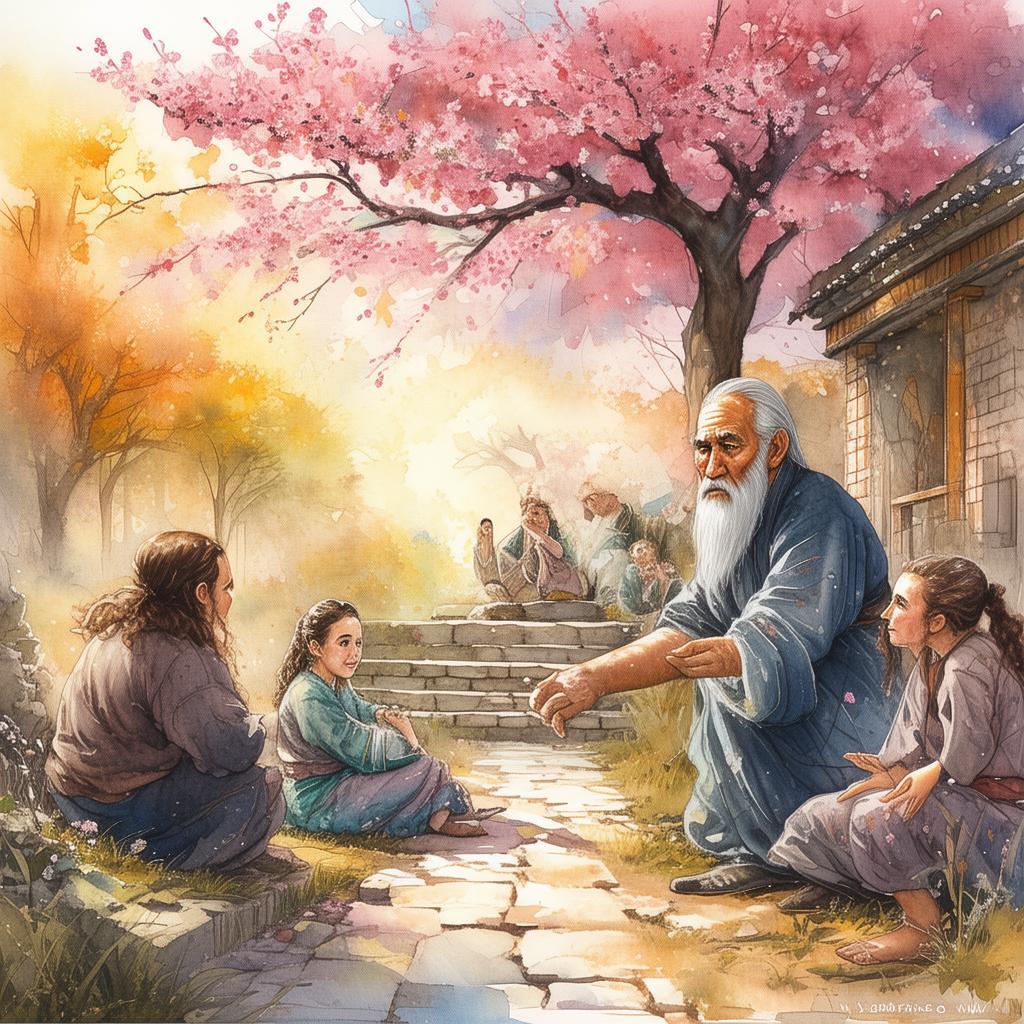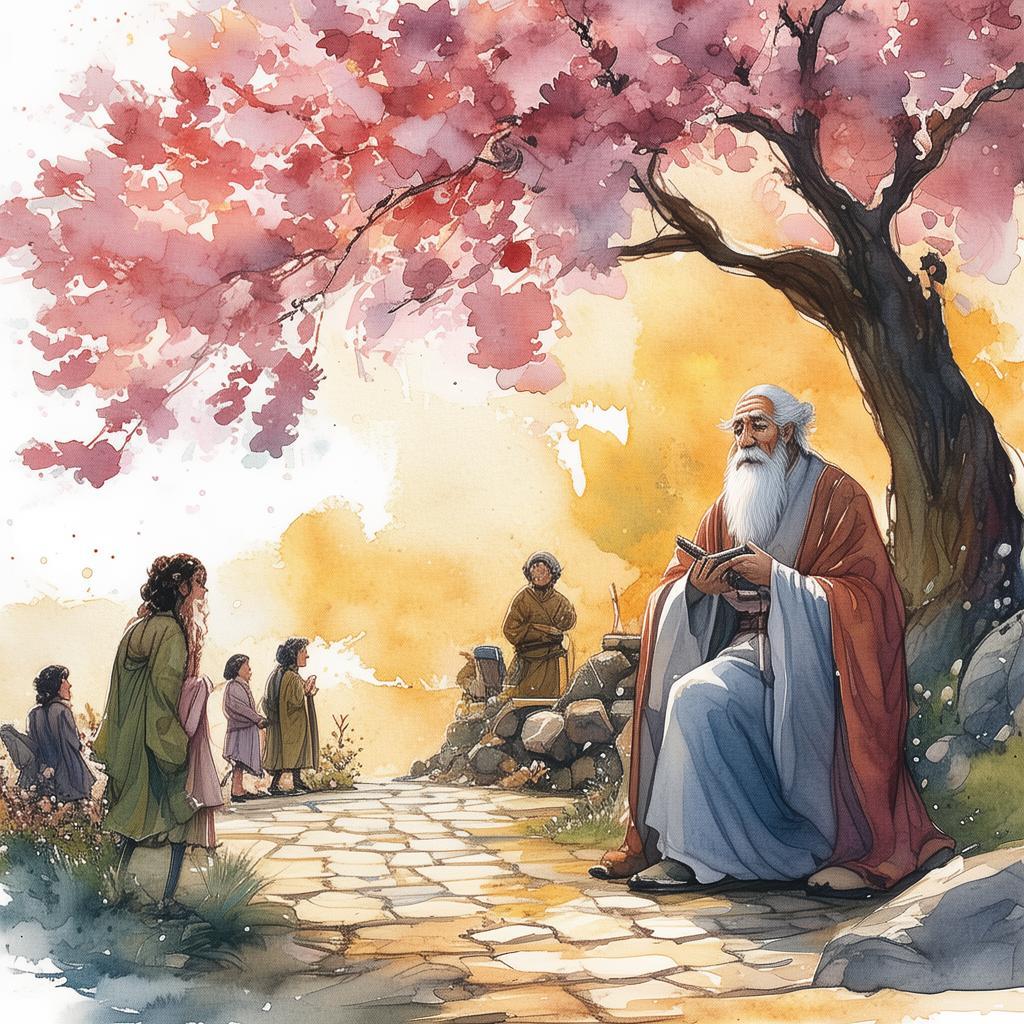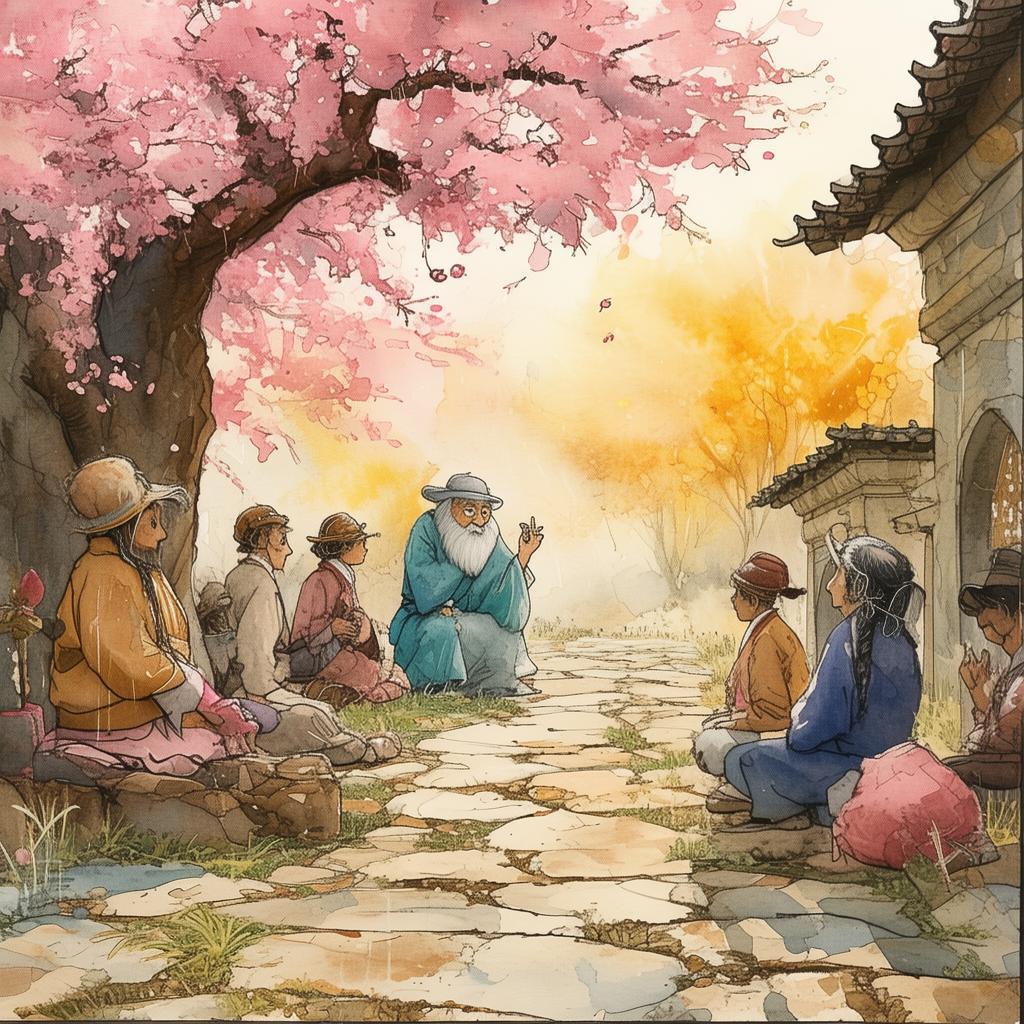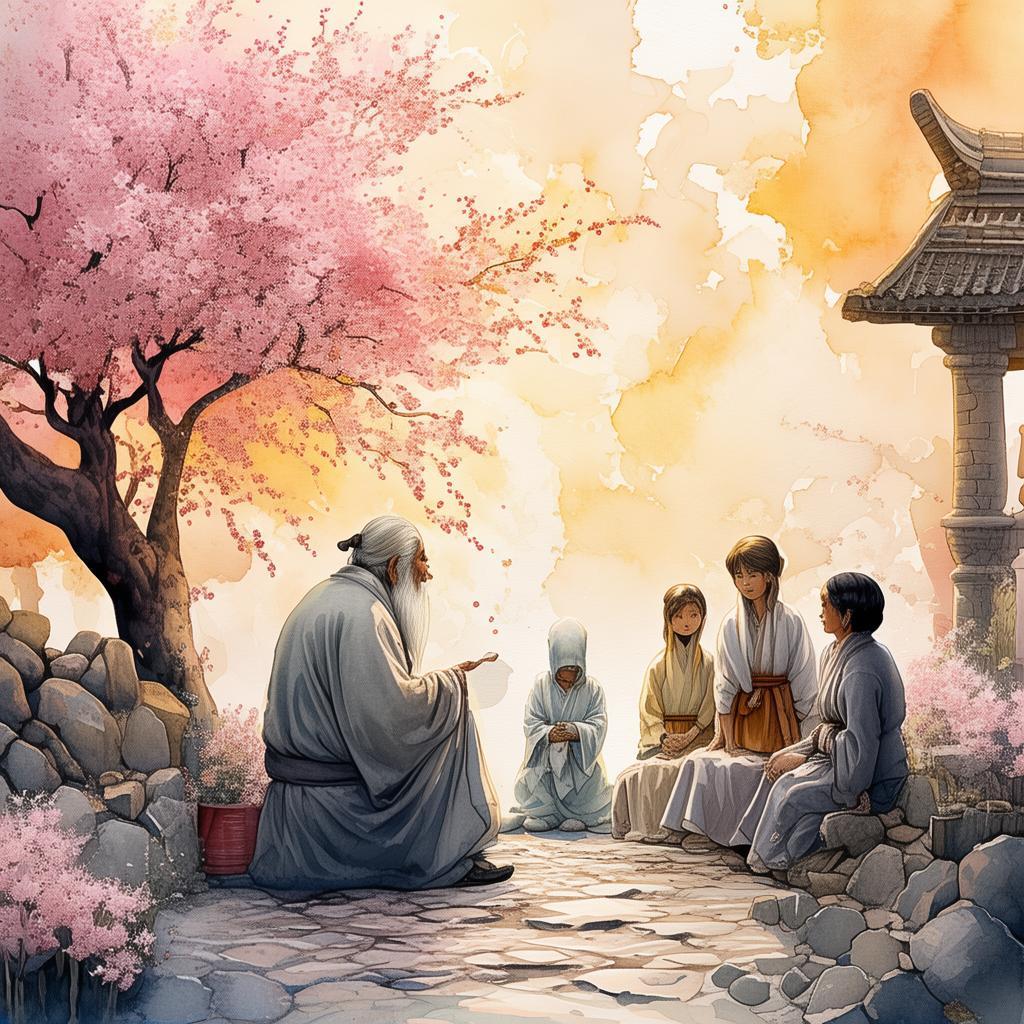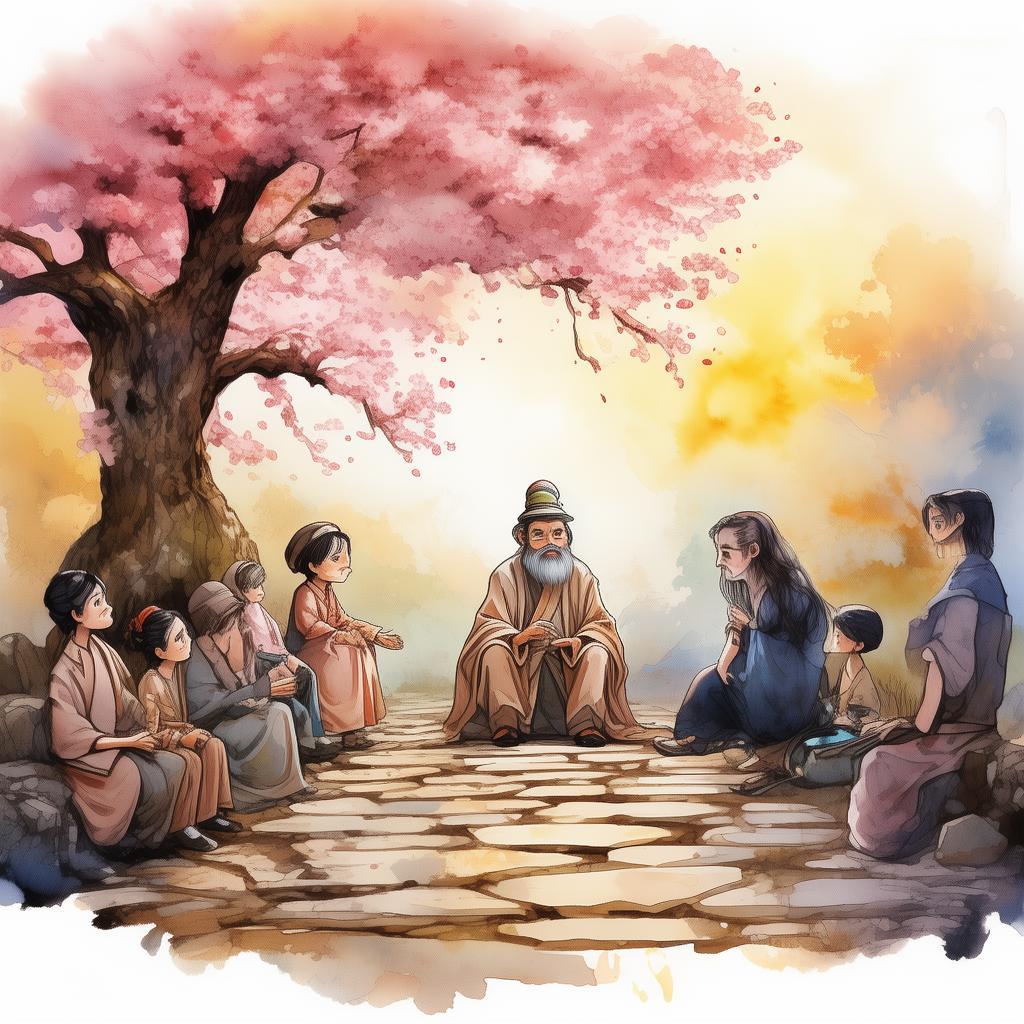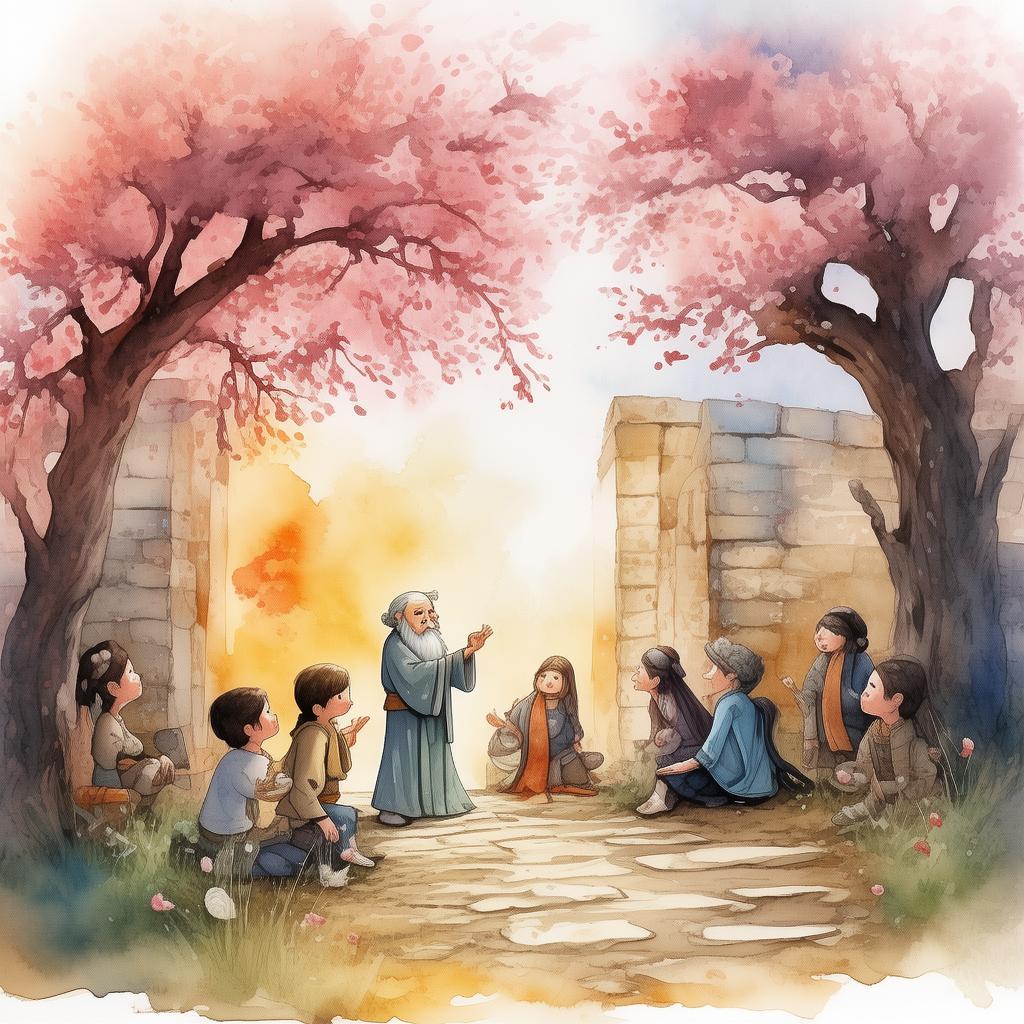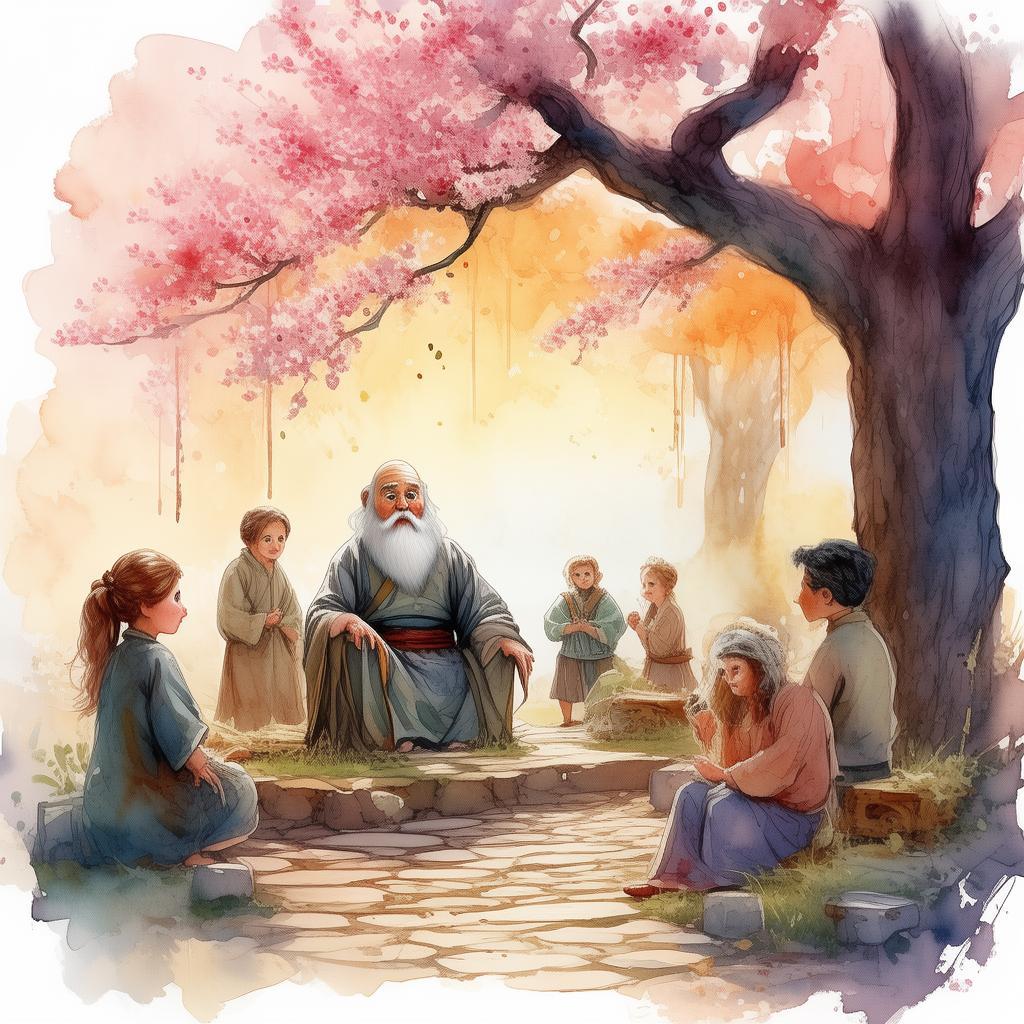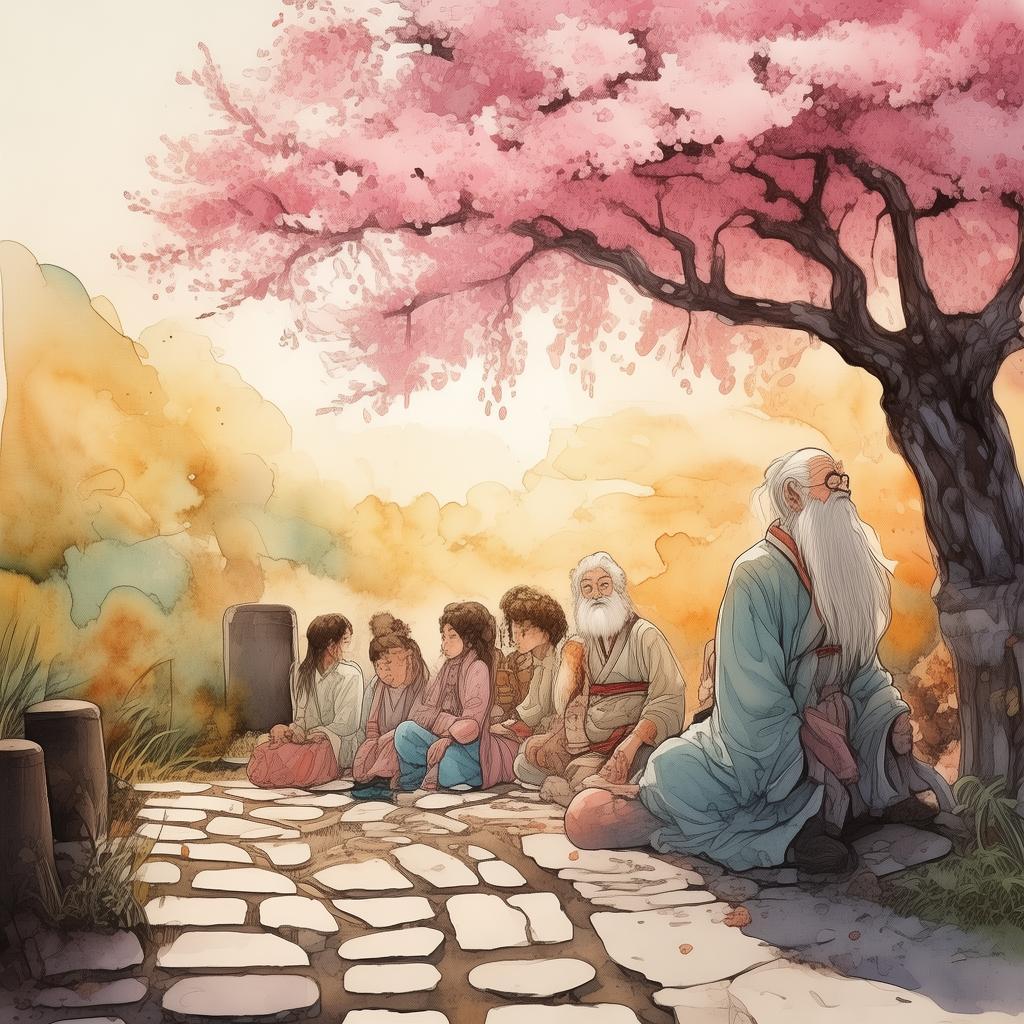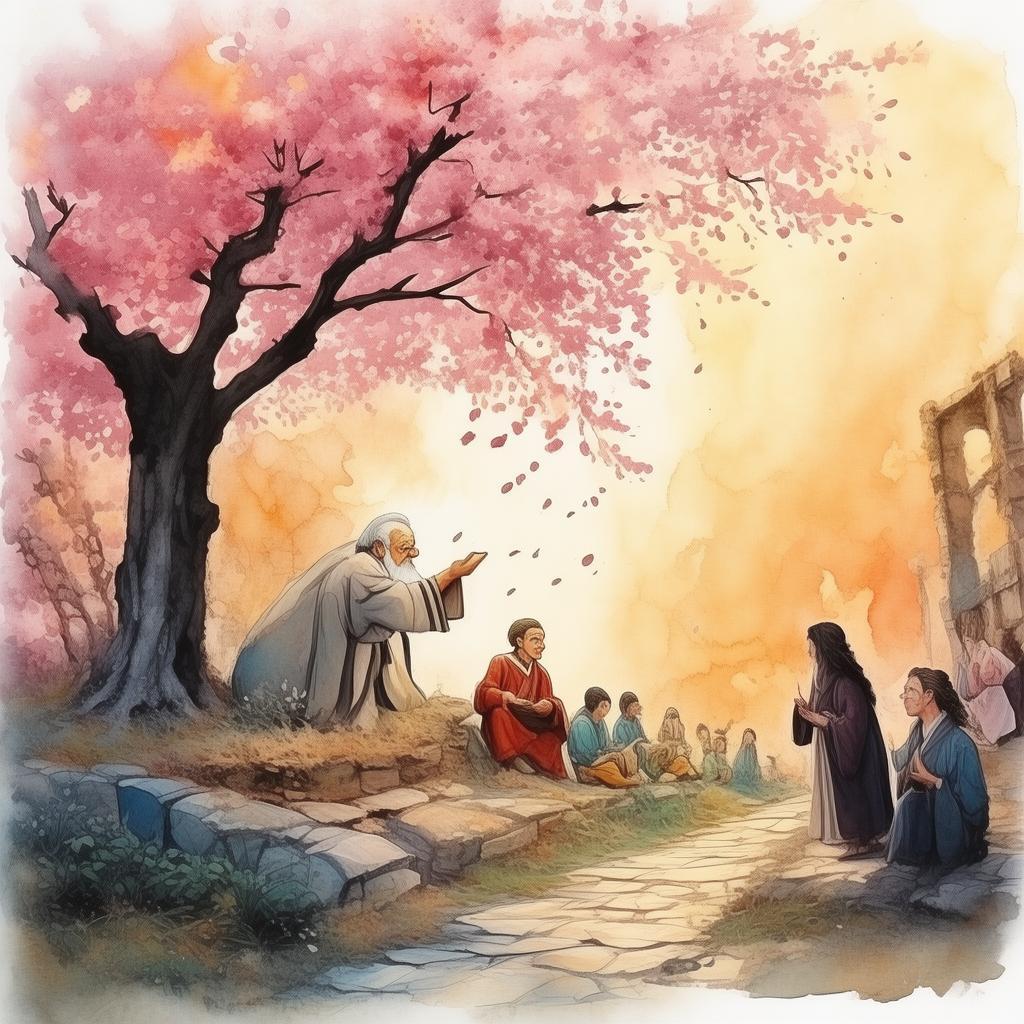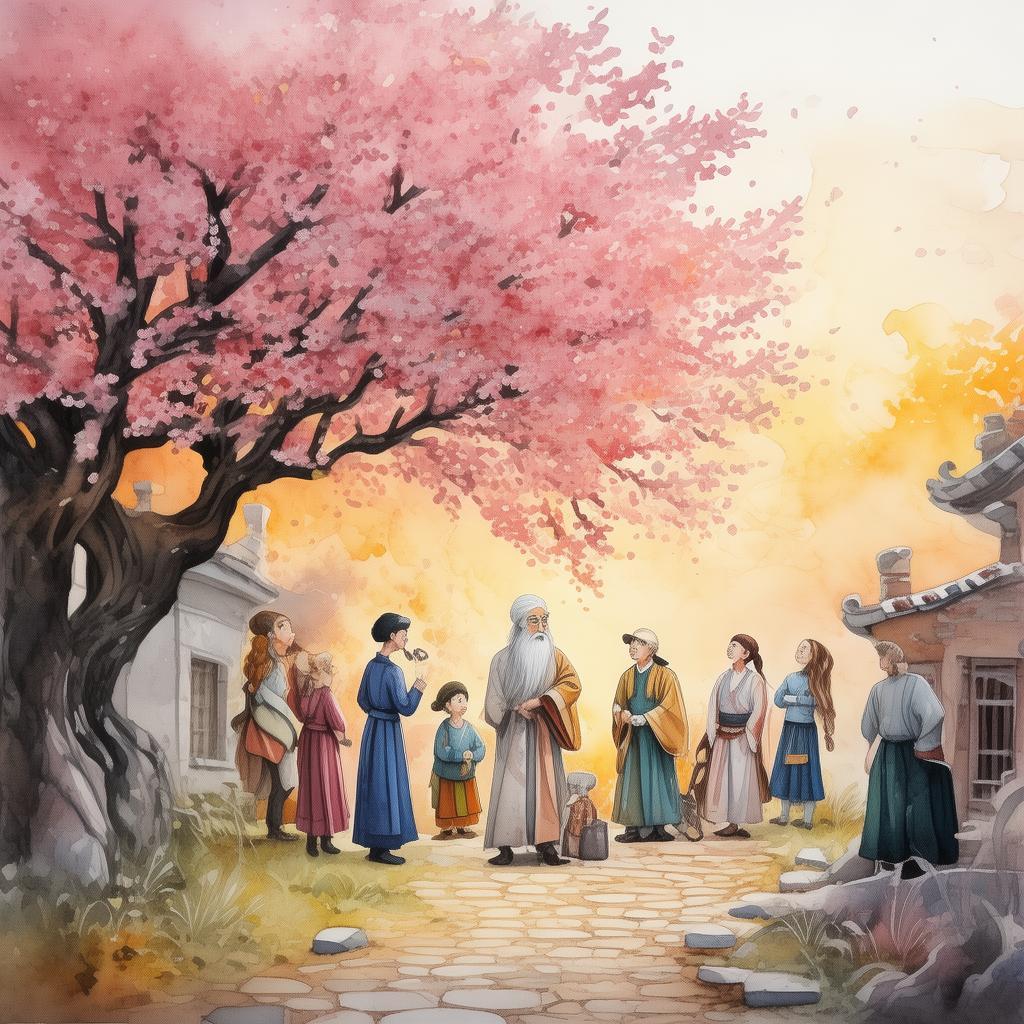The Battle of Wei River: A Tale of Strategic Triumph
In the year 208, during the turbulent era of the Three Kingdoms, the realm was a patchwork of kingdoms, each vying for power and influence. Among these was the Kingdom of Wu, ruled by the charismatic King Sun Quan. The kingdom lay nestled along the Yangtze River, a strategic position that made it a prime target for neighboring states.
The Kingdom of Shu, led by the formidable Liu Bei, and the mighty Kingdom of Wei, under the rule of Cao Cao, were the two dominant forces in the region. Cao Cao, with his vast resources and formidable army, had set his sights on conquering the rest of the land, and his gaze fell upon the Kingdom of Wu.
King Sun Quan, realizing the threat Cao Cao posed, sought the counsel of his most trusted advisor and general, Zhou Yu. Zhou Yu, a man of immense intellect and strategic prowess, was the architect of the Kingdom of Wu's military might.
The two men sat in the grand hall, the scent of incense mingling with the sound of distant drumbeats. Sun Quan, a man of action and fiery temperament, turned to Zhou Yu with a gaze that demanded answers.
"General Zhou," he said, his voice firm, "Cao Cao's forces are on the march. We must decide our strategy. Will we fight them head-on, or will we retreat?"
Zhou Yu's eyes reflected the weight of the moment. "Your Majesty, to fight Cao Cao head-on would be folly. His army is vast and his resources abundant. We must use our wits to outsmart him."
Sun Quan leaned forward, his interest piqued. "Then what is your plan, General?"
Zhou Yu stood, his presence commanding the room. "We will use the Wei River to our advantage. The river is a natural barrier, and we will fortify it. We will also send spies into Cao Cao's camp to gather intelligence."
Sun Quan's brow furrowed. "And if they catch our spies?"
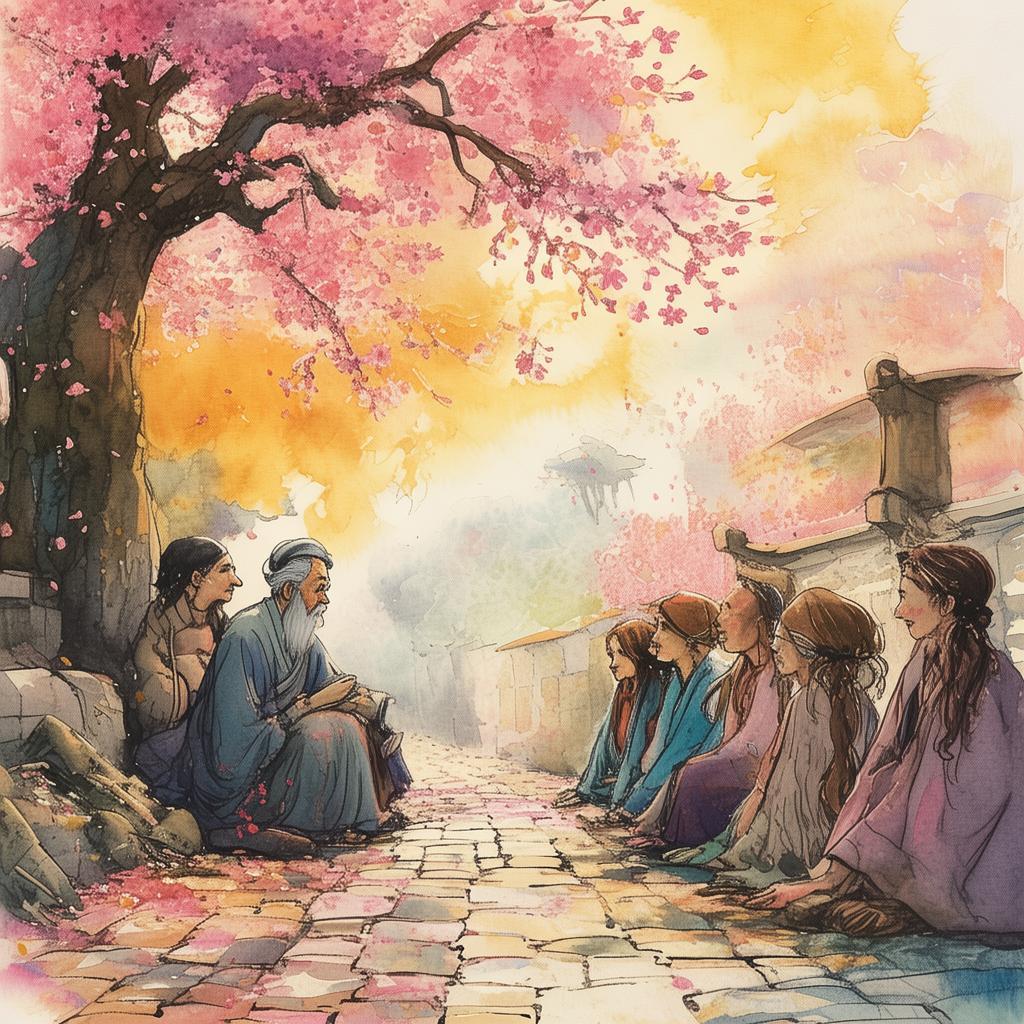
"Then we will have our answer," Zhou Yu replied calmly. "But if they do not, we will have all the information we need to devise a cunning plan."
The king nodded, a hint of respect flickering in his eyes. "Very well, General. I place my trust in you."
Zhou Yu's plan was meticulous. He divided his forces into three groups. One group would fortify the riverbanks, preparing for any attack. The second group would remain hidden, ready to launch surprise strikes. The third group, the most crucial, would become spies, infiltrating Cao Cao's camp.
The spies, dressed in the attire of common soldiers, blended seamlessly into the ranks of the Wei army. They reported back to Zhou Yu, detailing the movements and strengths of Cao Cao's forces. With this information, Zhou Yu crafted a plan that would turn the tide of the battle.
As the Wei army approached the river, they found it fortified with wooden stakes and a dense curtain of bamboo. The river was a natural barrier, but the stakes and bamboo made it impassable. Cao Cao, a man known for his impatience, was livid. He ordered his engineers to devise a way to cross the river.
Zhou Yu, aware of Cao Cao's actions, knew his time was coming. He waited until the night of the new moon, when the moonlight would be at its weakest. He sent his hidden forces to sabotage the bridge Cao Cao's engineers had constructed.
As the engineers worked tirelessly, the hidden forces moved in. They cut the ropes, causing the bridge to collapse into the river. Cao Cao, unaware of the sabotage, was caught by surprise. His army, disorganized and in disarray, was easy prey for Zhou Yu's forces.
The battle raged for hours. The sound of swords clashing with shields, arrows zipping through the air, and the desperate cries of soldiers filled the air. Zhou Yu, standing atop a hill, watched as his forces fought valiantly.
As the sun began to rise, the battle came to an end. The Wei army had been routed. Cao Cao, his face marred with defeat, retreated in haste. The Kingdom of Wu had triumphed, and the phrase "strategic triumph" was born.
King Sun Quan, his eyes gleaming with pride, turned to Zhou Yu. "General, you have achieved the impossible. Your strategic brilliance has won us this victory."
Zhou Yu bowed his head, his expression humble. "Your Majesty, it is not I who should be praised. It is the courage and determination of our soldiers who fought so valiantly."
The Kingdom of Wu celebrated the victory, and the phrase "strategic triumph" became a symbol of the kingdom's might. It was a testament to the power of strategic thinking and the importance of using one's resources wisely.
As the years passed, the tale of the Battle of Wei River was passed down through generations. It became a lesson in the art of war, a reminder that sometimes, the greatest victories come not from brute force, but from strategic brilliance.
✨ Original Statement ✨
All articles published on this website (including but not limited to text, images, videos, and other content) are original or authorized for reposting and are protected by relevant laws. Without the explicit written permission of this website, no individual or organization may copy, modify, repost, or use the content for commercial purposes.
If you need to quote or cooperate, please contact this site for authorization. We reserve the right to pursue legal responsibility for any unauthorized use.
Hereby declared.
